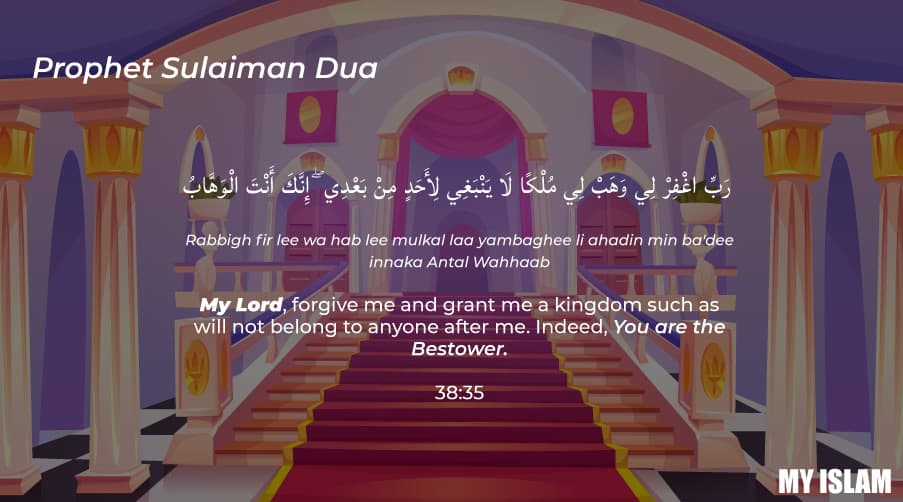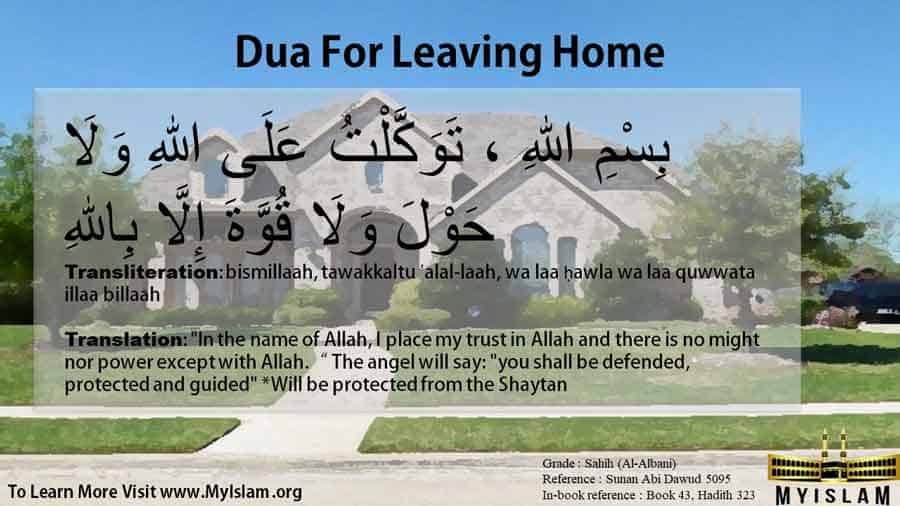
Should we make du’a for material things in this Dunya or should we only be concerned of the akhira?
This question can be answered by studying the du’a Prophet Sulaiman (as) made.
رَبِّ اغْفِرْ لِي وَهَبْ لِي مُلْكًا لَا يَنْبَغِي لِأَحَدٍ مِنْ بَعْدِي ۖ إِنَّكَ أَنْتَ الْوَهَّابُ
Rabbigh fir lee wa hab lee mulkal laa yambaghee li ahadin min ba’dee innaka Antal Wahhaab
My Lord, forgive me and grant me a kingdom such as will not belong to anyone after me. Indeed, You are the Bestower.
Surah Sad Ayat 35
Key Takeaways:
- Asking for success is not inherently bad. That is unless you desire to become a tyrannical dictator. In a plane, what do they tell you? Put your oxygen mask on first before helping others. Asking for this Dunya is fine, most people when they make sure their needs are met would then give – not hoard. That’s admirable.
- It’s important to find out what our strengths and weaknesses are. If you don’t believe you have one, that’s a lie. We all have unique temperaments and capabilities, and we can develop skills and habits that complement them. Once you identify this, you can then make a pledge to Allah (swt) to use it to strengthen your deen. Striving to leave a lasting legacy, that is not really asking for the Dunya.
- We also have to remember to pray for the akhira because this life is just temporary, we must not forget that this. What was the first thing Prophet Sulaiman did when he began this du’a? He says, Rabbigh fir lee meaning my Lord forgive me. Everything he asks only comes after having asked for forgiveness first.
Prophet Sulaiman in this du’a asks Allah (swt) to grant him a kingdom, but not just any kingdom. A kingdom so large no one will be able to have anything like it after him.
But notice how he began this du’a, he starts first by asking for forgiveness. In his heart and his mind, he did not forget or lose sight of the end. It’s clear it’s not only this Dunya he’s concerned about, it’s the akhira as well.
We’ve also commented on how in another du’a Prophet Sulaiman (as) he shows he always remains dutiful and found ways to be grateful to Allah (swt) for all the gifts he’s been given. This is clear proof that the wealth or power would not corrupt him.
Most men would not be able to hold that position of power, it would be their downfall. So, we have to have the awareness to know whether what we are asking Allah (swt) for would benefit us or destroy us in the long run.
We must also ask ourselves, why is he concerned with having such a big and mighty kingdom?
Answer: Da’wah.
The good that will come from a leader like Sulaiman (as) having the power and wealth is nothing but positive. In fact, the more wealth he has the better it is for everyone, therefore he should be asking for even more.
It’s important to find out what our strengths and weaknesses are. If you don’t believe you have one, that’s a lie. We all have unique temperaments and capabilities, and we can always pick up new skills and habits that compliment them. Once you identify this, you can then make a pledge to Allah (swt) to use it to strengthen your deen and use it to help others.
Focusing on leaving a legacy, that is not really asking for the Dunya. Even if you benefit from it a little, it’s net positive for society.
Conclusion:
Asking for success is not inherently bad. That is unless you desire to become a tyrannical dictator.
In a plane, what do they tell you?
Put on your oxygen mask on first before helping others.
Asking for material things in this Dunya is fine, most people when they have their needs met would give – not hoard. When your glass is full, you can give to others generously.
That’s admirable.
We just have to remember to also pray for the afterlife. In this du’a, Prophet Sulaiman (as) begins with asking for forgiveness. He know this life is temporary, but sometimes we get so busy in life that we forget that.




RAMADAN MUBARAK ! RAMADAN KAREEM !
I LOVE ALL THE DUAS WITH THE EXPLAINATIONS . GREAT WEB ‘MY ISLAM ‘ BARAK ALLAH FEEK ‘
ALHAMDULILLAH